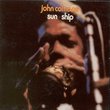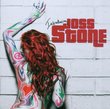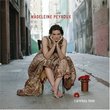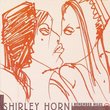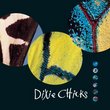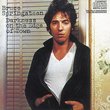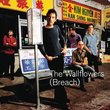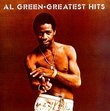| All Artists: John Coltrane Title: Ascension Members Wishing: 2 Total Copies: 0 Label: Polygram Records Release Date: 6/6/2000 Album Type: Original recording remastered Genres: Jazz, Pop Style: Avant Garde & Free Jazz Number of Discs: 1 SwapaCD Credits: 1 UPC: 731454341325 |
Search - John Coltrane :: Ascension
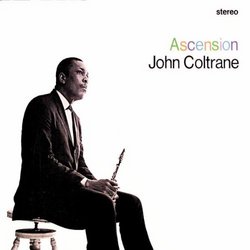 | John Coltrane Ascension Genres: Jazz, Pop
Few works remain genuinely controversial 35 years after their inception, but Ascension can generate as mixed a response today as it did when it was released. In May 1965, Coltrane assembled 10 other musicians for o... more » |
Larger Image |
CD DetailsSynopsis
Amazon.com Few works remain genuinely controversial 35 years after their inception, but Ascension can generate as mixed a response today as it did when it was released. In May 1965, Coltrane assembled 10 other musicians for one of his most ambitious recordings, a 40- minute piece that was a landmark in the free-jazz movement and a key moment in Coltrane's sponsorship of the younger members of the New York avant-garde. Along with his regular rhythm section--McCoy Tyner, Jimmy Garrison, and Elvin Jones--the band includes trumpeters Dewey Johnson and Freddie Hubbard, tenor saxophonists Archie Shepp and Pharoah Sanders, altoists Marion Brown and John Tchicai, and Art Davis playing bowed bass. The improvised ensembles shout and cry with galvanizing power, their tension testifying to Coltrane's influence and the saxophone's dominance in the style. It's both brilliant and flawed work, however, in ways that go to the heart of Coltrane's musical thought. It's rooted in modal music, with a brief pentatonic figure (a variation on the opening motif of A Love Supreme) as its basis. While it's broken up by the intense ensembles, the string of solos seems too close to a Jazz at the Philharmonic approach to free jazz. The horns stretch toward energy music, while the rhythm section, particularly Tyner, seems rooted in modality. As a result, the soloists often come off the soaring blowouts to find themselves with little more support than a reiterated chord, and they sometimes seem to merely run out of steam. It's still startling music, though, and necessary listening, whether for the sheer power of the ensembles, the sustained creativity of Coltrane and Sanders, the stylistic contrasts in the horn players, or the acerbic understatement of Tchicai, so effective in the midst of the maelstrom. Coltrane couldn't decide on which of the two versions he preferred, and Edition II was covertly substituted for Edition I during the run of the original LP. This CD manages to include both. --Stuart Broomer Similar CDs
Similarly Requested CDs
|
CD ReviewsColtrane's Best Bill Your 'Free Form FM Handi Cyber | Mahwah, NJ USA | 05/08/2008 (5 out of 5 stars) "This is my favorate Coltrane Record. The music starts off at an extreme level of intensity, and maintains this throught the 40 minute piece. Tyner and Jones propel this music at a runaway train pace. (No pun intended.) But it is the soloing that makes Ascention such a white hot listen. The music is so on fire that the solos start where most solos climax. It is gut wrenching, in the best musical way. I just want to add: Do not buy this if you want a repeat of Ornette Coleman's "Free Jazz" album. That record works on a similar concept, but where that record is a campfire, this is an inferno. BUY IT" After a safe masterpiece, a dangerous one Eric Krupin | Salt Lake City, UT | 06/15/2008 (5 out of 5 stars) "Still cresting the tidal wave of popular and critical acclaim created in the wake of his instantly-hailed-as-a-masterpiece "A Love Supreme", John Coltrane was a man who could have coasted very comfortably through the rest of 1965. Instead, in act of great artistic bravery, he began expressing his striving-for-the-spiritual in the chaotically passionate language of the free jazz then just beginning to emerge. And in thus lending the imprimatur of his reputation to the new sound, sparked the brief but spectacular flourishing of that style. Jazz musician Dave Liebman described this record as the "torch that lit the free jazz thing". Indeed, in retrospect, "Ascension" is as clearly the founding document of its kind of music as the "Saturday Night Fever" soundtrack was for disco or the UK release of "The Clash" was for punk. So a full appreciation of the record must include an awareness that this is the sound of history being made. [And, given the contemporaneous rise of both free jazz and the civil rights movement, not just musical history either. In the mid-1960s, for a group of men identifying themselves for the first time as "African-Americans" to make a noise this raw and powerful could not help but seem an at least slightly subversive act.] True, this isn't music for everybody. But I like to believe that the people who can see the beauty in it will find their way to it. If you're one of them - but are intimidated by its fearsome reputation - to you I offer these encouragements: - Coltrane called this project "a big band thing". While, to a Benny Goodman fan, this might seem a willfully perverse description, Coltrane - a man of a sincerity rare among artists of his stature - meant it quite simply. Though it may not seem that way at first, have no doubt that these 11 musicians are playing as an ensemble. Together, they are performing the same "piece of music". - Structurally, the piece is disarmingly simple. Ensemble, Soloist 1, Ensemble, Soloist 2... etc. The Wikipedia article on the album helpfully identifies the sequence of soloists on both takes. - The ensemble playing - which reaches a volume closer to rock than to acoustic jazz - will seem less abrasive if you listen for individual horns and switch your attention between them, rather than confront the mass of atonality head on. Go ahead - there's no rule against it. - The saxophonists vary in the extent to which they play "in between the notes" during their solos. But in musical intention, they're not doing anything different than Coltrane did when he deliberately squeaked a few times during "A Love Supreme". They're trying to convey emotion through sound. If you listen for it, you may be suprised how easy it is to hear it." Chaos in a bottle S. Perry | MA | 10/26/2008 (4 out of 5 stars) "I'm not a complete stranger to experimental music whether its prog-rock sojourns, free jazz explorations or psycedelic freak outs, but Ascension remains one of the most challenging listens in my collection.
I have to admit it took me at least half a dozen tries before I made it through the whole thing. My previous experience with Coltrane was with the spiritually and musically ecstatic album A Love Supreme, and his magnificent collaboration with Duke Ellington, but with this one Coltrane fled into the outer reaches and dared anyone brave enough to follow. There's something bold, brash and perhaps a bit foolish about this one, like setting off fireworks in a phone booth. (Remember phone booths kiddies?) It's nearly pure cocophony, but every so often something coalesces and becomes musically tangible. Here and there a riff, a groove or a melody floats up out of the frenzy and is quickly consumed once again. You're either going to find something wonderful in the daring and raw energy or this work, or you're going to think it's utter junk, nothing more then a bunch of musicians having a blind free for all. For my part I'm still getting to know this album, but I find there's something in the talent and tenacity of the musicians that just barely holds this mad beast together. It's a rare occasion that I listen to it, but always find myself a little bit better for it, each time I do." |

 Track Listings (2) - Disc #1
Track Listings (2) - Disc #1